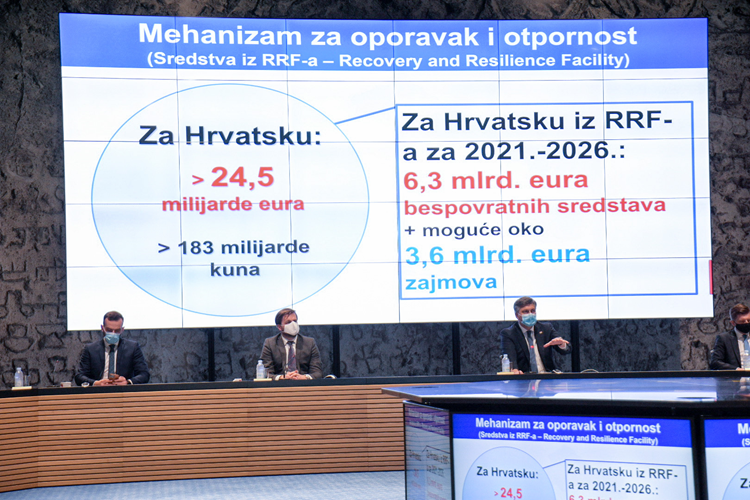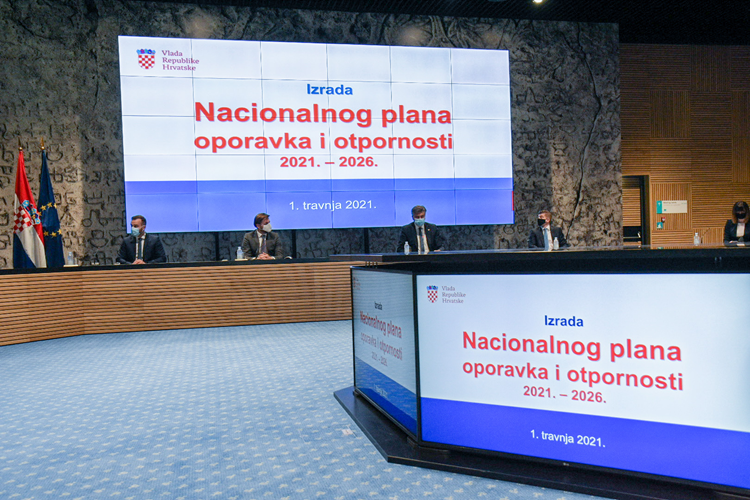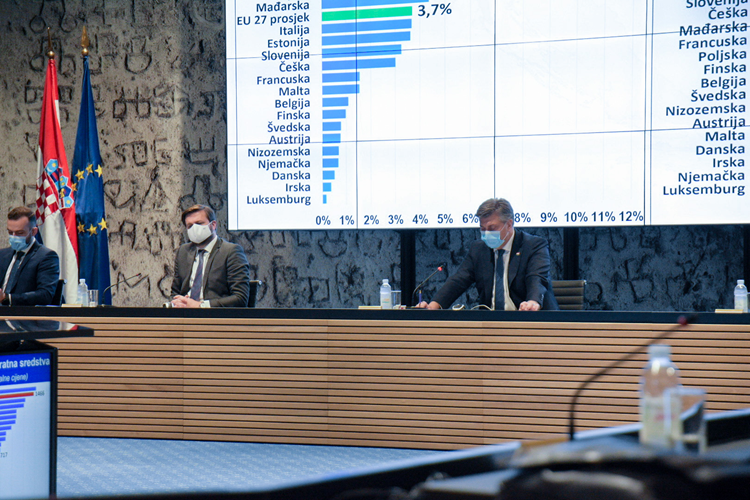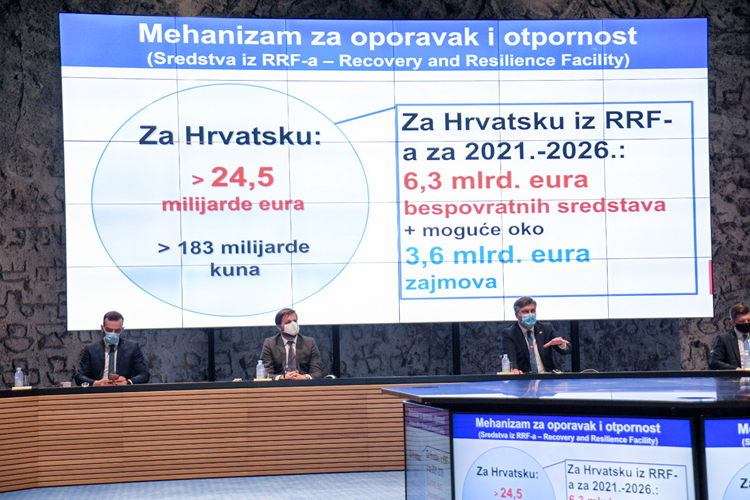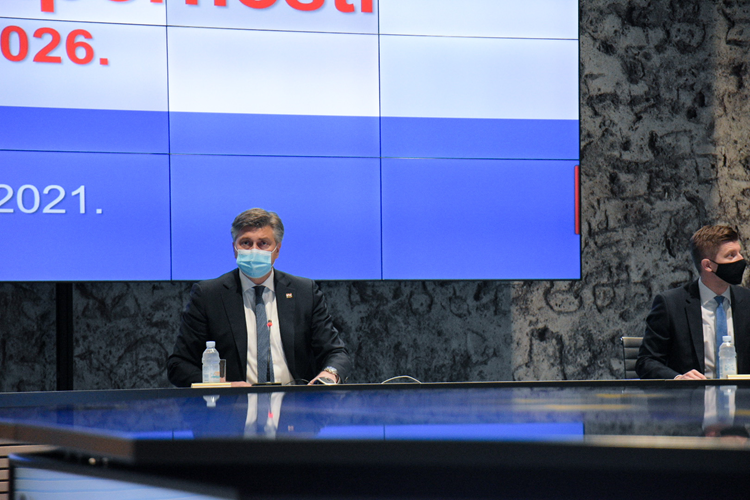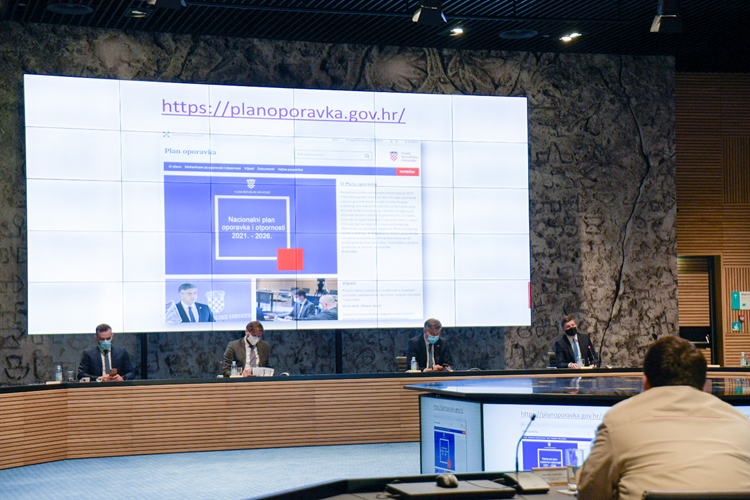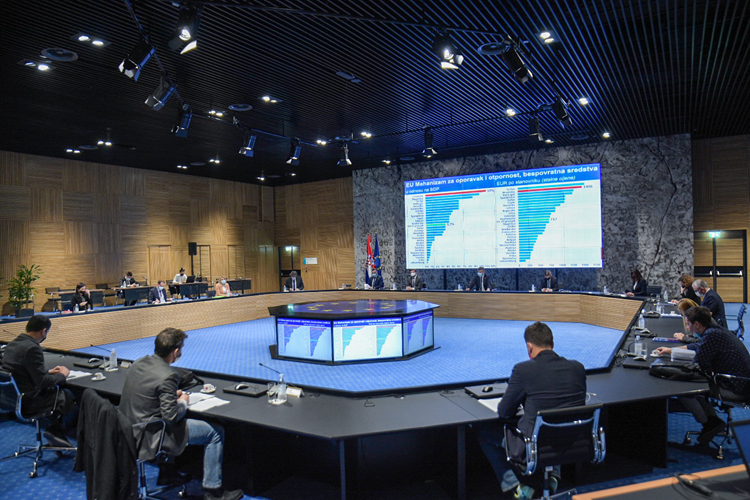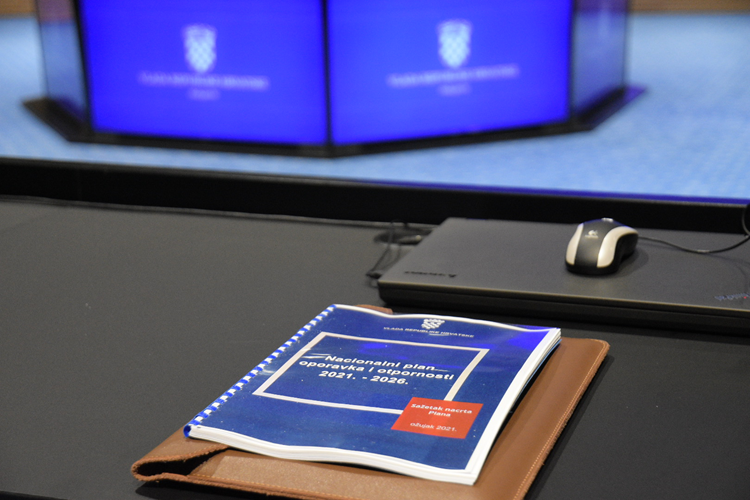- Published: 01.04.2021.
Reforms precondition for money from Recovery and Resilience Facility
In order to obtain money from the EU Recovery and Resilience Facility, Croatia must implement reforms because the money will not be given unconditionally or without any criteria, PM Andrej Plenković told reporters on Thursday, presenting a summary of the National Recovery and Resilience Plan.
The 2021-2026 National Recovery and Resilience Plan (NPOO) contains project proposals in six areas worth HRK 49.08 billion. Its drafting and submission to the European Commission is a precondition for obtaining funds from the European Recovery and Resilience Facility (RRF) for the period from 2021 to 2023.
Under the RRF, Croatia has €6.3 billion in grants at its disposal, plus an additional €3.6 billion in potential loans.
"That is not helicopter money," Plenković said, adding that in order to obtain it, Croatia had to carry out reforms, and one of the preconditions was also the drafting of the National Recovery and Resilience Plan. Aside from reforms, another precondition is that at least 37% of the funds is used for investments that contribute to the green transition and 20% for digital transition.
Also, it is necessary to respect the "do not cause significant harm" principle in terms of climate change, pollution prevention and control, biodiversity and eco-systems, for each individual reform and investment planned.
Plenković noted that Croatia is first in the EU with regard to the share of grants available under the RFF in its GDP - 12% - whereas the EU average is 3.7%.
In terms of the amount of grants per capita, Croatia is close to the very top in the EU, after Greece, with €1,466 per capita.
Components and sub-components
The main components of the NPOO are enterprise sector; pubic administration; judiciary and state assets; education, science and research; labour market and social protection and health. Apart from the five components, there is also the initiative 'Building reconstruction' sector.
The five components cover 22 thematic subcomponents which cite specific reforms and investment needs.
Of the HRK 49.1 billion worth of projects proposed in the NPOO, 54% of the requested allocation or HRK 26.2 billion refers to the enterprise sector; 10% or HRK 4.8 billion is intended for public administration, judiciary and state assets; 15% or HRK 7.5 billion for education, science and research; 4% or HRK 2.1 billion is intended for the labour market and social protection; and 9% or HRK 2.56 billion for health; 12% or HRK 5.94 billion of the allocation is intended for the initiative 'Building reconstruction'.
Plenković said that in the category 'enterprise sector', investments were planned in energy transition for sustainable economy, improvement of water and waste management, development of a competitive, energy sustainable and efficient transport system, advancement of the use of natural resources and strengthening the food supply chain, and development of a sustainable, innovative and resilient tourism.
Funds are also to be directly disbursed to entrepreneurs through guarantee schemes, interest subsidies and grants.
In public administration, judiciary and state assets investments are planned in the making and implementation of public policies and projects, promotion of the efficiency of public administration, etc.
The HRK 7.5 billion intended for education, science and research is expected to be used, among other things, to enhance research capacity, while the labour market and social protection are expected to experience investments in the pension system by increasing pension adequacy and advancing the system of social care.
Investments in health include investments in boosting the resilience of the health system, and the initiative for the reconstruction of buildings refers to post-earthquake reconstruction.
Investments proposed in the NPOO must be completed by 31 August 2026.
Specific projects
Reporters wanted to know about examples of concrete projects to be financed from the RFF. One of them is a biorefinery plant in Sisak, and there are also investments in the Rimac Automobili company, said Economy and Sustainable Development Minister Tomislav Ćorić.
Health Minister Vili Beroš announced investments in equipment for cancer diagnostics and treatment and the establishment of a national oncology network and a system for the management of human resources.
Ćorić said that a significant number of water infrastructure projects had building permits, and he also announced horizontal support to the private sector.
Creation of 100,000 jobs
Since the NPOO envisages the creation of 100,000 jobs, reporters wanted to know if Croatia had enough workers to fill those jobs, to which Labour Minister Josip Aladrović said that that would be possible with the combined hiring of domestic and foreign workers.
PM Plenković said the parliament would debate the NPOO on 14 April and that the document should be sent to the EC by the end of April. The EC is expected to evaluate it within two months from submission, after which the Council of the EU should approve the EC's evaluation within four weeks from the adoption of the proposal by the EC.
After the NPOO is adopted, the payment of an advance in the amount of 13% of available grants is possible in the second half of the year. In Croatia's case, that amounts to around €600 million.
Text: Hina
